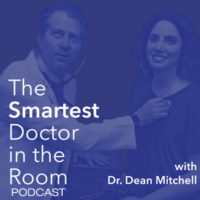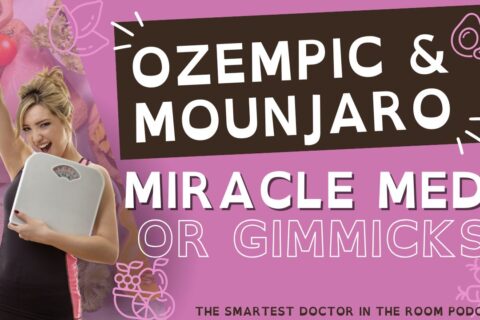The 5 Key Supplements that Fight Fatigue

At Mitchell Medical Group, our practice’s focus is on being “fatigue fighters.” We see many patients of various ages from teenagers to older adults whose lives have been railroaded off course due to chronic fatigue symptoms.
Our job of course as physicians is to do a serious medical workup to make sure there is no other treatable illness that needs to be corrected. The most common examples are mineral deficiencies such as iron, which can lead to anemia; there are endocrine disorders of which low thyroid activity is one of the most common, and there are cases where infections ranging from viruses to bacteria are the key culprit. As holistic doctors, we are on the special alert to Candida or yeast overgrowth as a cause of dysfunction of the good and bad bacteria in the gut which leads to a wide variety of symptoms- but fatigue is the most severe. Yeast overgrowth has several triggers and occurs in 4 main stages.
Patients that are diagnosed with Chronic fatigue in our practice are offered our Intensive Vitamin treatments – by injections or IV to quickly restore the key nutrients the body needs to get recharged. The intensive phase is only for a month and patients come in for weekly treatments. The focus of the treatment is to “re-energize” a patient’s mitochondria. Do you remember what mitochondria are? You probably learned about them in high school biology but forgot about them as soon as you passed the class. The mitochondria that are present in all our cells have been called the “powerhouse battery” of our cells. Muscles especially are dependent on mitochondria to replenish the key molecules of ATP. Again another biology term, what is ATP? Think of ATP, adenosine triphosphate, as your body’s money bank – like an ATM at the bank. Every time your body needs energy it goes to the ATP bank and borrows some. But what happens if your ATP in your account is running low – or worse almost empty. This is where over the drafting of your body account typically leads to fatigue.
As I mentioned in our office we provide immediate “loan assistance” with our specially designed IV and injection vitamin treatments; however, you can start to replenish your “health account” with the following key supplements known to support mitochondria.
D-Ribose
A naturally occurring sugar in the body that doesn’t act like other sugars – it doesn’t elevate your blood sugar and doesn’t make you fat. D-Ribose is important in adding strength to the body’s DNA inside the mitochondria. Dr. Jacob Teitelbaum has published some of the original studies showing that D-Ribose has been proved to help patients with chronic fatigue. The brand I most trust is Corvalen by Douglas Labs and the D-Ribose can be taken one scoop (5mg) up to 3x a day. You just put it in a drink and let it do its job. In our practice, we have many grateful patients who benefitted from this simple treatment.
Coenzyme Q10
Coenzyme Q10 or CoQ10 as it is commonly referred to is also so critical to muscle function, especially heart muscle function. It is an essential enzyme to get the muscle working properly. Unfortunately, many patients that take statins to lower their cholesterol can get depleted of CoQ10 as a side effect of the medicine. This is why many patients on statin complain of low energy or muscle pain. It is critical for anyone on a statin is taking CoQ10. Dr. Stephen Sinatra, a well-known holistic cardiologist reported patients who had severe heart failure recovering using this supplement. The dosage I recommend is usually around 400mg a day.
L-Carnitine

This is a special amino acid only found in meat that supplies the body with energy. I worry about vegetarians, who develop fatigue because the plant-based diet which is generally very healthy is missing this key building block for proteins. Foods such as lamb and other meats are high in carnitine. I usually prescribe 200 to 400mg a day for mitochondrial support.
Magnesium
This is another key mineral that is frequently overlooked. Magnesium is essential for so many physiological reactions in the body. And unfortunately, it is easily depleted by certain medications. For example, acid-blocking medications (Prilosec, Nexium) make it harder to retain Magnesium in the body. And Constipation medications that contain Magnesium actually pull more Magnesium out of the body. At Mitchell Medical Group, we order a special type of Magnesium test to determine the body’s storage of magnesium. The type of Magnesium we recommend is magnesium malate as it is better absorbed than the more common magnesium citrate or oxalate that most pharmacies carry.
Omega-3 Fish Oils

Omega Fish oils contain the key fatty acids that reduce inflammation in the body and in turn fight fatigue. There is a wide variety out there to choose, but I tend to recommend Zonelabs products because I like the ratio of EPA to DHA. Also, their products are specially filtered to remove any toxins from the fish or sea. And the best part: it doesn’t give that fishy aftertaste some fish oils can cause. You can take at least one or two capsules a day to get heart and muscle protection.

The great thing about these 5 Fatigue Fighting supplements they are generally safe for everyone- and if you suffer from chronic fatigue it must be a part of your daily routine – Doctor’s orders!
– Dr. Dean Mitchell, M.D.
Mitchell Medical Group in NYC & Long Island
About the Author – Dr. Dean Mitchell, M.D.
Dr. Dean Mitchell, M.D. is a Board Certified Allergist and Immunologist based out of NYC. He graduated from the Sackler School of Medicine and completed training at the Robert Cooke Allergy Institute in New York City. He is also a Clinical Assistant Professor at Touro College of Osteopathic Medicine, a fellow of the American Academy of Allergy, Asthma, and Immunology, and the author of Dr. Dean Mitchell’s Allergy and Asthma Solution: The Ultimate Program for Reversing Your Symptoms One Drop at a Time. Dr. Dean Mitchell, M.D. has also been featured in The New York Times, The Huffington Post, Fitness Magazine, Dr. Oz and News NY 1. Dr. Mitchell also hosts the podcast The Smartest Doctor in the Room – a combination of a lively, personal and in-depth interview with top healthcare specialists.


